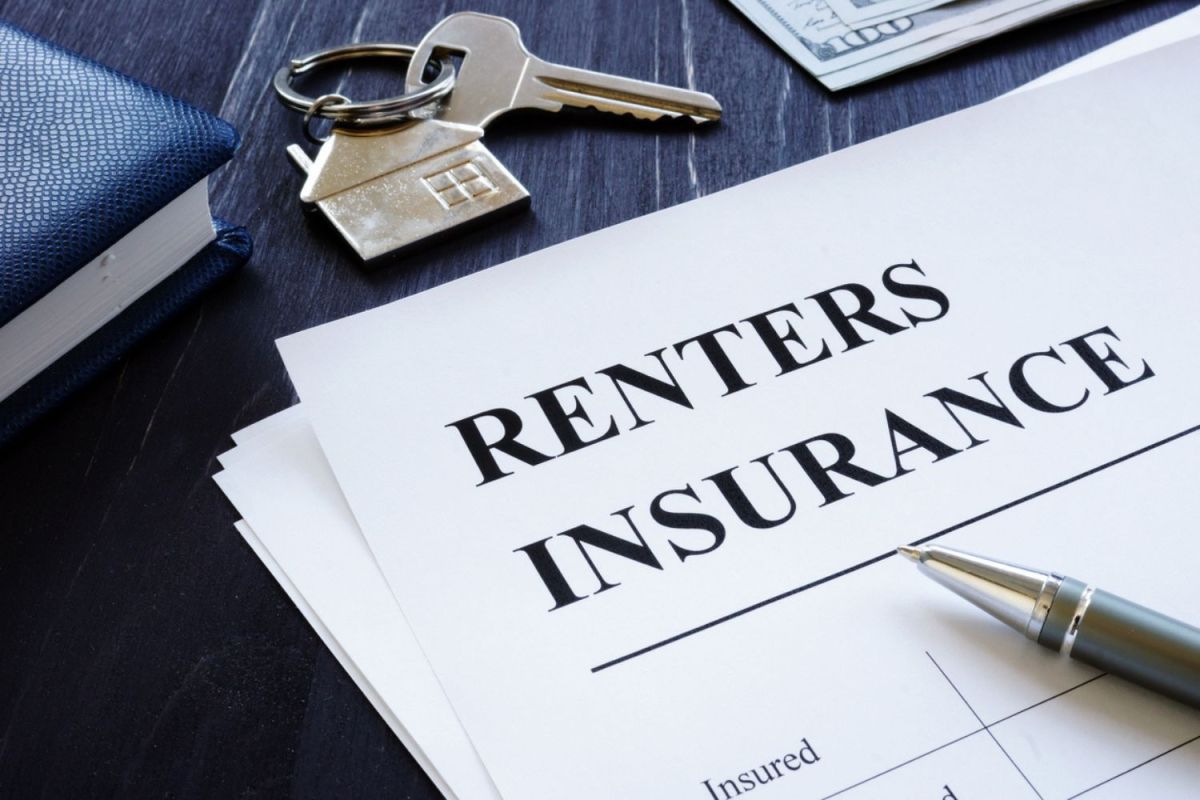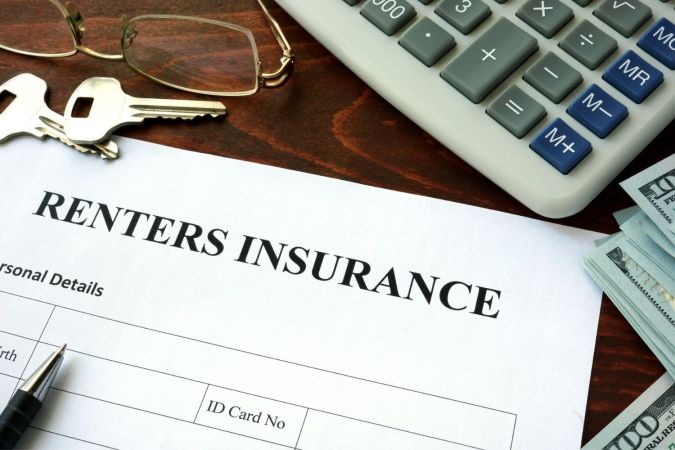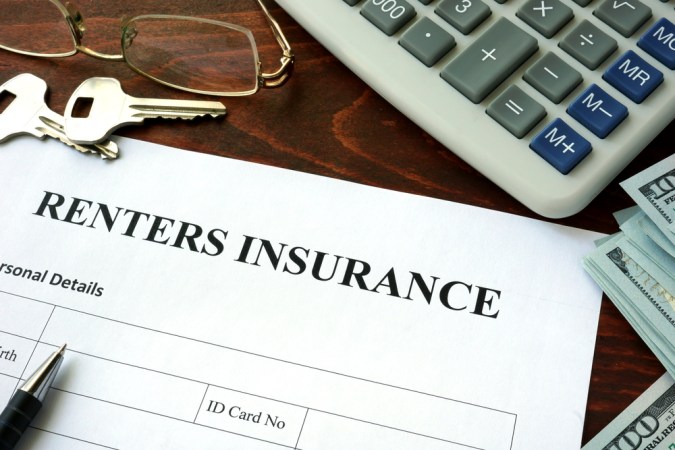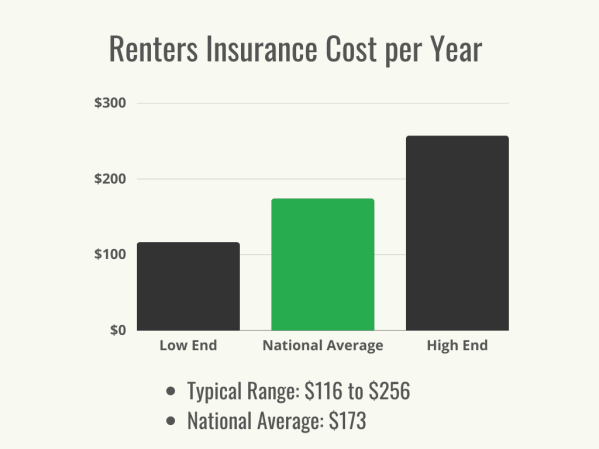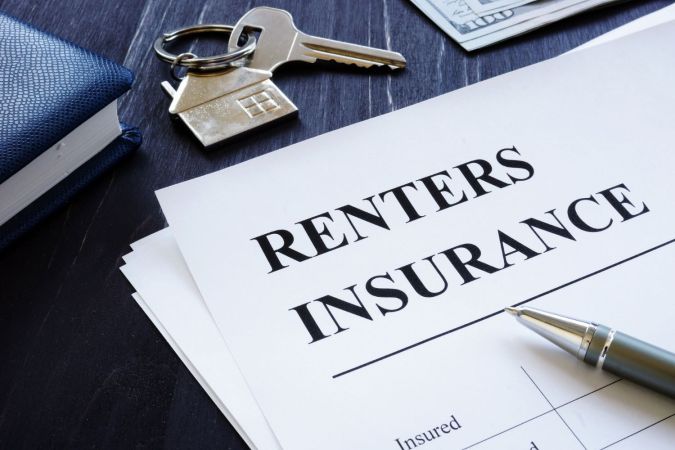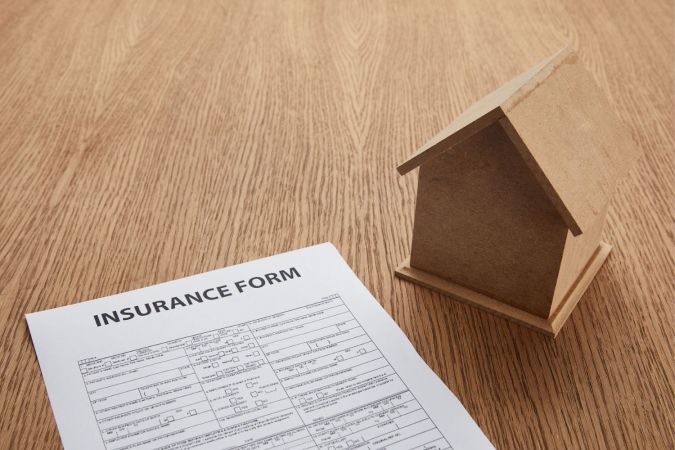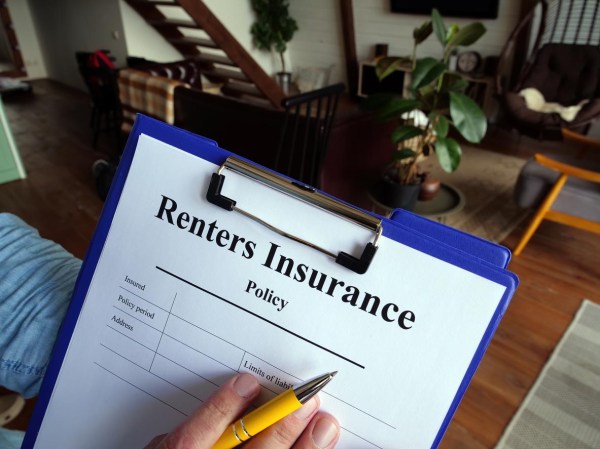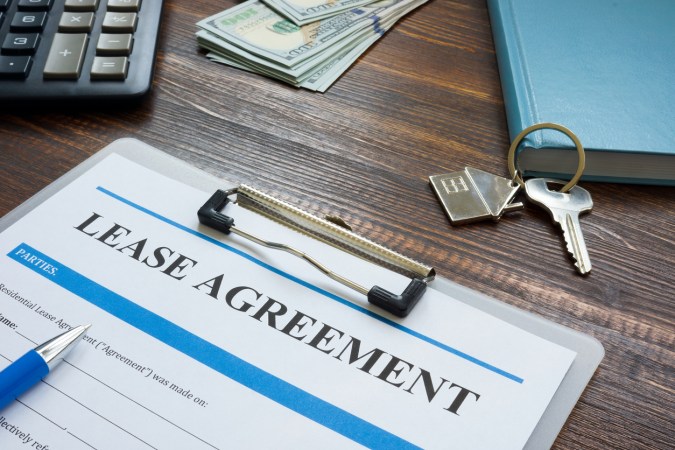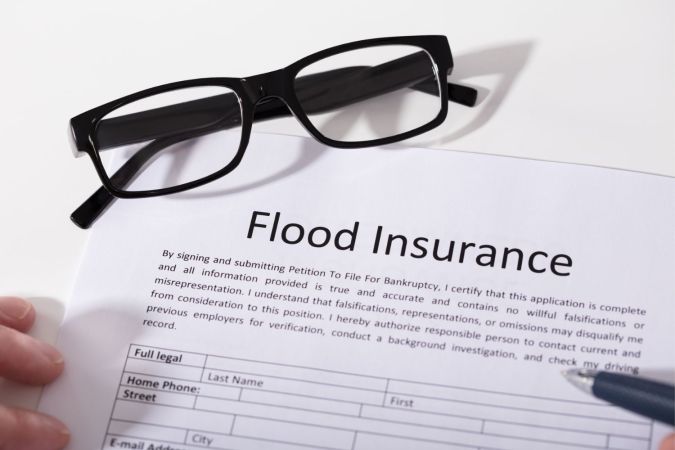We may earn revenue from the products available on this page and participate in affiliate programs. Learn More ›
Q: I want to make sure I’m protected in case the worst happens and my belongings sustain fire damage. Does renters insurance cover fire damage?
A: Fire damage is commonly covered by renters insurance and is one reason it’s a good idea to get renters insurance. Since renters insurance covers a number of perils, including damage caused by a fire, it’s likely you’ll have coverage.
Renters insurance offers several types of coverage for fire. Personal property coverage can help repair or replace fire-damaged possessions. Liability coverage can help pay to replace a neighbor’s personal property that’s damaged by a fire deemed to be the renter’s fault. Loss-of-use coverage can help cover the renter’s additional living expenses if they are required to move out of their rental home or apartment while repairs are being made after the fire. Learn more about how this coverage works for renters who are dealing with the aftermath of a fire.
Renters insurance typically covers fire and smoke damage to the renter’s personal belongings.
Does renters insurance cover fire damage to possessions? In general, yes. Personal property insurance provides coverage for a renter’s personal belongings in the event of a fire. Does renters insurance cover smoke damage? Yes; renters insurance fire coverage will generally cover replacement of any smoke-damaged items that aren’t salvageable after the fire.
It’s important to note that renters fire insurance coverage kicks in after the renter pays the deductible. So if a renter has a $500 deductible, that amount would have to be paid and then the insurer would reimburse the renter for the cost to repair or replace any possessions that were damaged by the fire up to the limits of the policy.
It’s a good idea for renters to take an inventory of their possessions to prove to the insurance company the value of what was lost. This can help streamline the claims process. An inventory simply lists what the renter owns and what it is worth, and it may include receipts from purchases as additional proof of purchase and value. Renters can also take pictures or videos of the rooms in their home as proof of what they own. Taking a home inventory can also help a renter determine how much renters insurance coverage they need to ensure they will be protected in the event of a covered peril.
Renters may need additional coverage for expensive items like jewelry, high-end electronics, or collectibles.
How much renters insurance does someone need? Renters insurance fire policies are usually designed to cover the renter’s personal belongings. This can include common items like furniture, televisions, and clothing. Many policies offer limited coverage for certain expensive items, such as up to $1,500 for jewelry replacement. However, renters who have a lot of expensive items may need to take out additional floaters, riders, or endorsements or raise coverage limits to cover certain items like expensive jewelry, musical instruments, or sports equipment.
Endorsements typically work by covering an expensive item or type of item up to a certain limit. If an item is valued above the base coverage on the main policy, adding scheduled coverage for named items can help pay for repairs or replacement of those items up to their stated value. Endorsements can apply to jewelry, expensive collections, computer equipment or specialty electronics, art and antiques, and camera equipment, to name a few.
The amount renters insurance will pay for fire damage varies depending on whether the renter has actual cash value or replacement cost coverage.
When taking out renters insurance, policyholders can choose to have their possessions replaced at their current cash value or at their replacement cost. Cash value coverage pays out the current value of the item minus depreciation. With this option, renters generally will not get back nearly as much money to replace their possessions that were damaged. So if a television cost $1,500 to purchase but was worth only $800 after depreciation, the $800 amount is what the insurer would base the claim on after the renter pays the deductible.
Replacement cost coverage, on the other hand, pays the renter the current cost to replace the damaged item with a brand-new item of similar quality. Whatever it costs to replace the item after it was damaged is what the insurance company reimburses, after the renter has paid the deductible. For this reason, replacement cost policies tend to be a better option, though policies with replacement cost coverage will have higher monthly premiums than policies with actual cash value coverage.
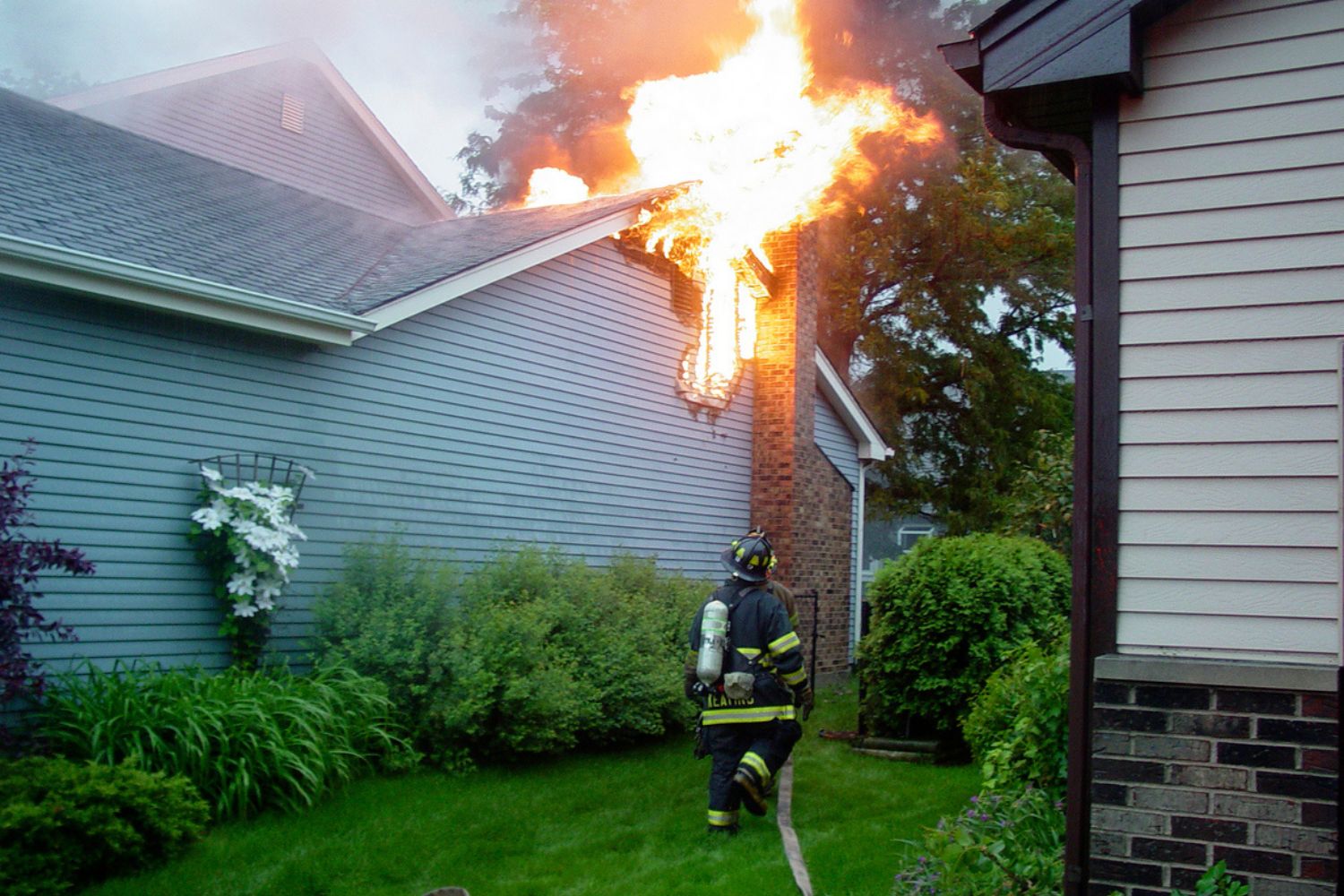
Renters insurance may reimburse the renter for living expenses if they need to relocate during repairs to the rental home or apartment following a fire.
Loss-of-use coverage can reimburse the renter for expenses above normal living costs after the fire. For instance, if a renter has to live in an extended-stay hotel while repairs are being made to their apartment after a fire, this coverage would help cover the hotel costs above and beyond normal rent payments. This type of coverage can even cover expenses such as restaurant meals or travel expenses, since these costs may be increased in a temporary living situation.
Does renters insurance cover wildfires? Renters insurance policies can cover additional living expenses in the event that a renter is required to relocate during a wildfire because of a mandatory evacuation. Even if the property sustains no damage, the renter may be reimbursed for additional expenses like hotel costs that go above monthly rental payments.
Liability coverage can protect the renter if they accidentally set a fire that damages someone else’s property or causes injury to another person.
Renters may wonder, “If my apartment catches fire am I liable?” Renters liability coverage can also cover fire in some circumstances. If the insured accidentally started a fire that caused damage to property or injury to others, then they would be covered by renters insurance liability coverage for a third party’s property damage, medical bills, or any court costs resulting from a lawsuit, up to the limits of the policy. For instance, if a renter accidentally causes a fire while grilling and that fire damages a neighbor’s fence before the fire was put out, liability coverage would likely pay for the necessary repairs to the neighbor’s fence.
However, liability insurance only covers property damage or injuries to third parties, or those people who are not part of the insured’s household. If the insured’s personal property sustained damage from the same fire described above, they would not be covered under the liability portion of their renters policy, although it’s possible their renters insurance policy could provide some coverage since the fire was accidental.
Renters insurance does not cover fire damage if the renter intentionally set the fire.
It’s important to note that renters insurance coverage only applies in the event of covered perils, including accidental grease fires, electrical shortages, accidents while grilling or having a bonfire, or fire started by an unattended candle. These situations are generally considered accidents and will likely be covered by renters insurance. Fires can start in apartments and rental homes for many reasons, so it’s important for renters to strongly consider carrying a renters insurance policy to keep themselves protected from this and a variety of other perils.
However, if the renter caused the fire intentionally, that is considered arson. In this case, the fire damage would not be covered by renters insurance, and the renter would likely face criminal charges.
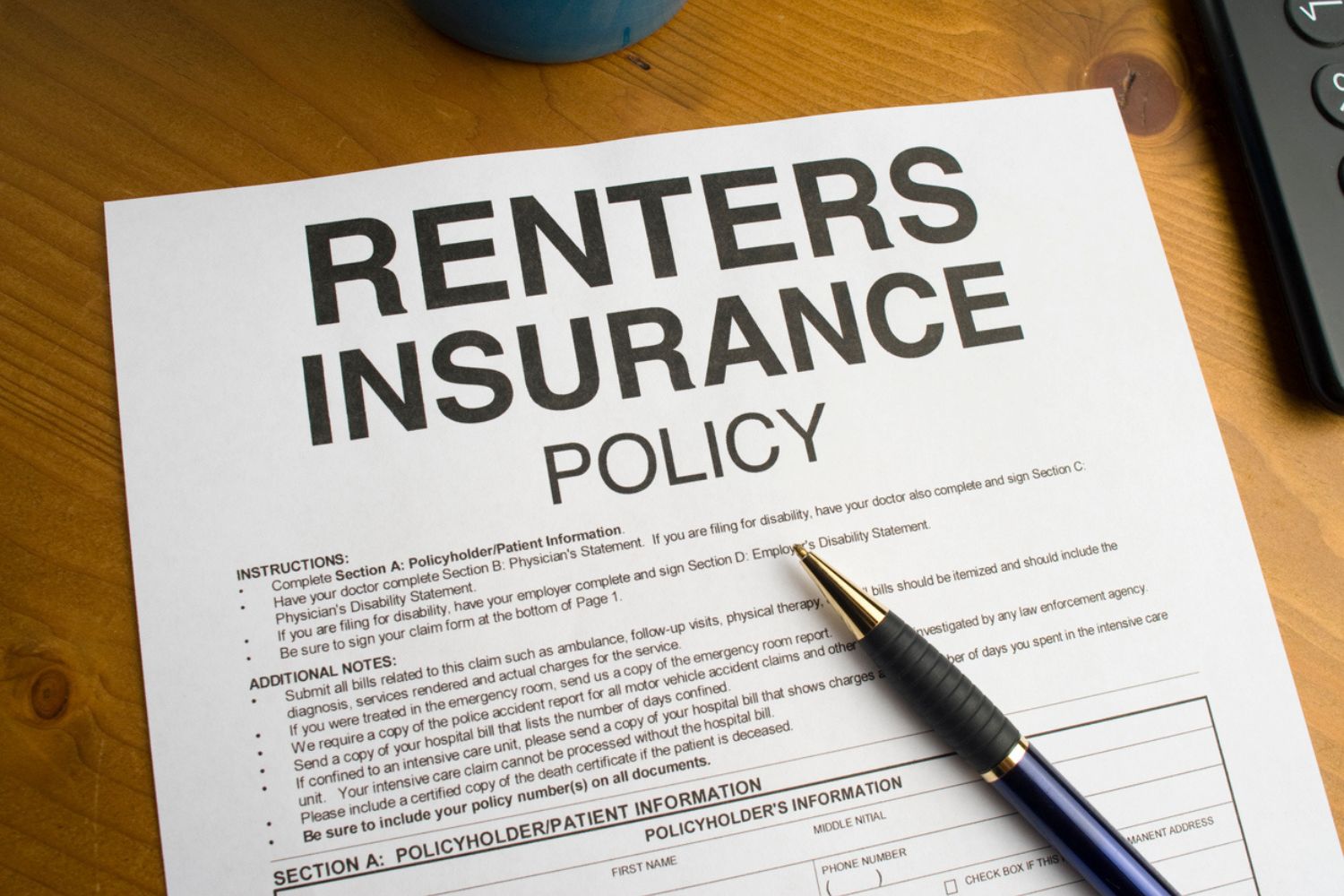
Renters insurance does not cover fire damage to the rental home; this is covered by the landlord’s insurance.
Does renters insurance cover fire damage to building structures? The short answer is no; renters insurance does not cover fire damage to the home, including damage to the walls, flooring, ceiling, or other direct structures of the building. This part of the damage is generally covered under the landlord’s insurance policy. However, it is possible for the landlord to seek compensation through the renter’s liability coverage if the renter’s negligence caused the fire.
Landlords who own the building they rent typically take out an insurance policy to cover the building itself. So if the building is damaged, that falls under the purview of the landlord’s policy, and the landlord must make a claim on their own insurance policy, unless the damage was caused by the renter’s negligence, in which case the landlord could make a claim against the renter, which could be covered by the renter’s liability insurance.
Installing fire safety devices could earn the renter a discount on their insurance premium.
Renters may want to talk to their insurance agent about what can earn them safety discounts on their insurance premiums. Some renters insurance companies allow renters to save on their premiums for adding safety devices to their apartment that help prevent or lessen damage from events such as a fire.
Renters can add a variety of fire safety devices that might help them lower their premiums. These might include using surge protectors, adding smoke detectors, or adding a fire extinguisher to the kitchen. Renters can coordinate with their insurance agent closely to see what they can do to increase fire safety and possibly save on premiums to help get the best renters insurance coverage.
